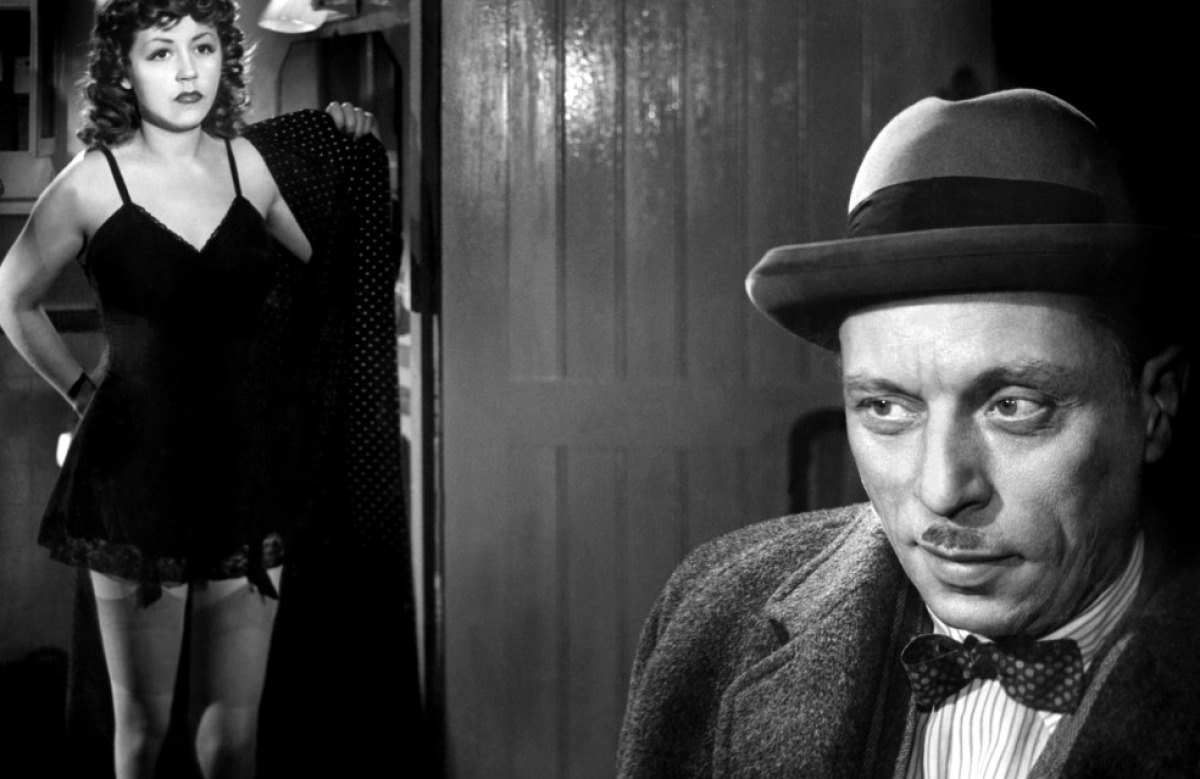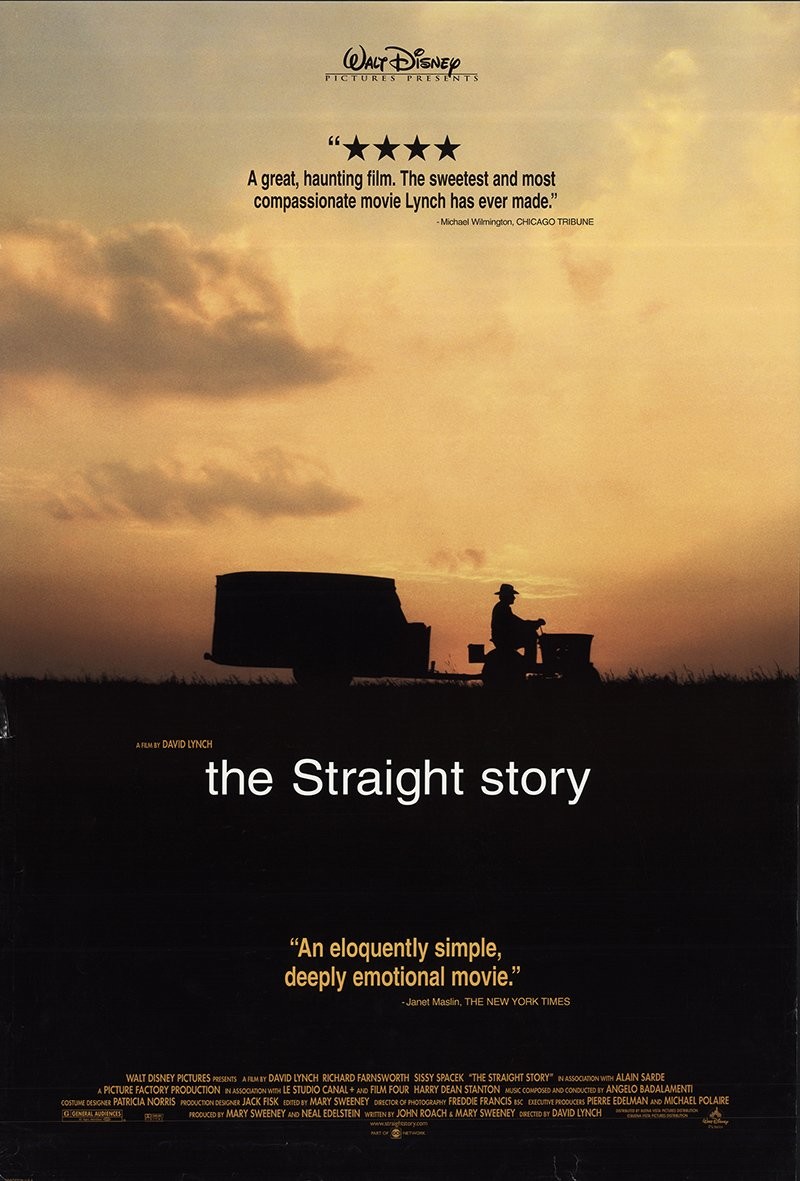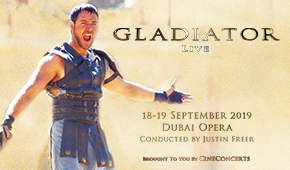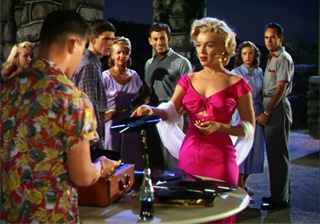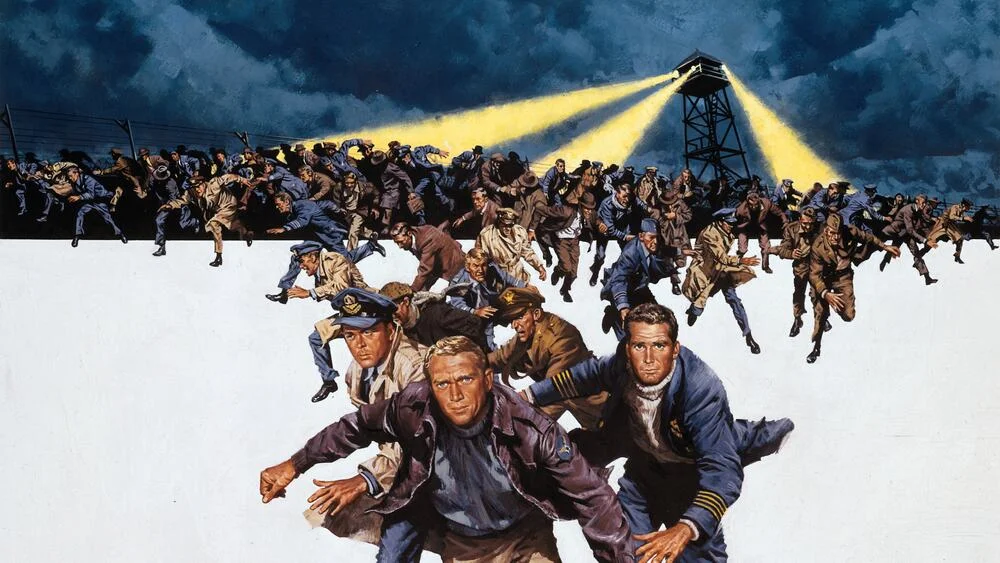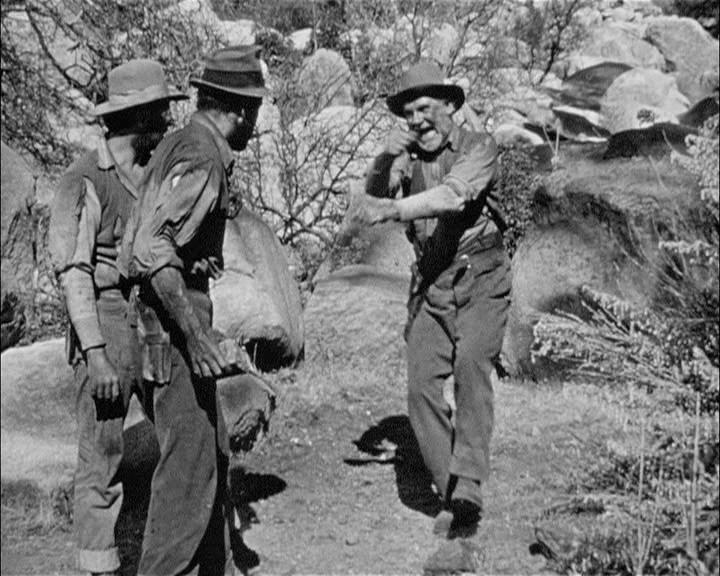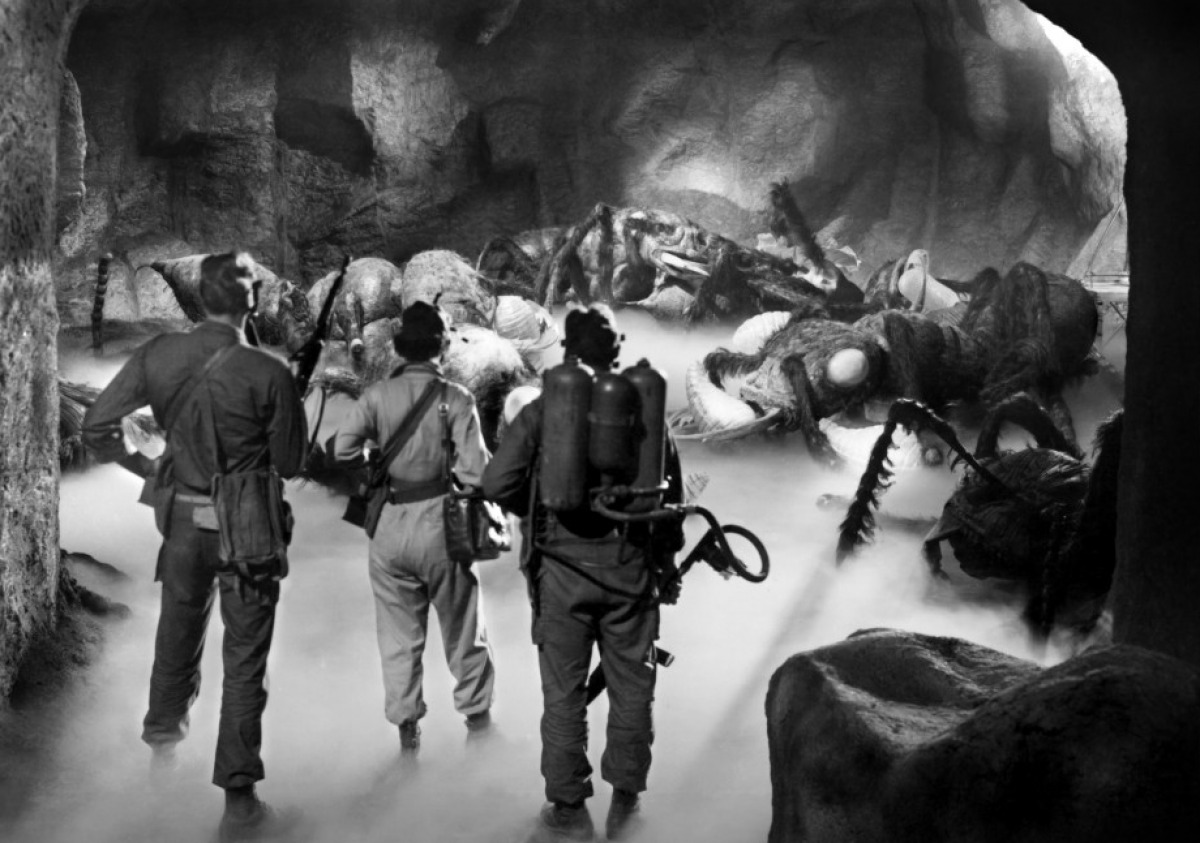"Now Listen to Me..."
Just some thoughts on current happenings:
Classic film screenings from around the world this month include:
In theatres across the U.S., TCM and Fathom Events are presenting Lawrence of Arabia (1962) Sunday, September 1 and Wednesday, September 4, El Norte (1983, in celebration of this film’s 35th Anniversary, restored by The Academy Film Archive) Sunday, September 15, Star Trek The Motion Picture (1979, the theatrical cut, celebrating this film’s 40th Anniversary) Sunday, September 15 and Wednesday, September 18 and The Shawshank Redemption (1994, celebrating the film’s 25th Anniversary) on Sunday, September 22, Tuesday, September 24 and Wednesday, September 25.
Click on the respective image for more information. To see the next few month’s schedule, click on The Fathom Events banner above.
Throughout various locations in Australia, Event Cinemas will host Hollywood Classics On the Big Screen. This month's showings will include The Italian Job (1969) Monday, September 2, The Maltese Falcon (1941) Monday, September 16 and Death on the Nile (1978) on Monday, September 23.
For a list of the theatres hosting these films, and their complete schedule throughout the remainder of the year, click on the banner image above.
Also throughout various locations in Australia, Event Cinemas will host In The House. This month's showings will include The Castle (1997) Monday, September 2, Forrest Gump (1994) Monday, September 9, The Shawshank Redemption (1994) Monday, September 23 and Highlander (1986) on Monday, September 30.
For a list of the theatres hosting these films, and their complete schedule throughout the rest of the year, click on the image above.
In Los Angeles, California The Beverly Cinema will present The Postman Always Rings Twice (1946, a 35mm print) on Wednesday, September 4 at 2pm only, Reservoir Dogs (1992, a 35mm print) on Saturday, September 7 at 11:59pm only, Possessed (1947, a 35mm print) Wednesday, September 11 at 2pm only, The Narrow Margin (1952, a 35mm print) Wednesday, September 18 at 2pm only and Criss Cross (1949, a 35mm print) on Wednesday, September 25 at 2pm only.
Click on the respective image for more information. To see the rest of September’s schedule, click on The Beverly Cinema banner above.
In Santa Monica, California, The American Cinematheque Aero Theatre is presenting The Cinematheque’s programme “The French Had a Name for It 5”. Highlights include a double bill of Quai des Orfèvres (1947) followed by The Sleeping Car Murder (1965, Compartiment Tueurs) on Thursday, September 5. Another double bill in this series worth seeing is Panique (1946) and Non Coupable (1947, Not Guilty) on Sunday, September 8. All films are in French with English Subtitles.
Putney Swope (1969, a 4k digital restoration) will be presented on Wednesday, September 18.
For more information specifically on each of these programmes, click on the corresponding above image. To see the entire month of September’s programming (not to mention the other films in the “The French Had a Name for It” series) for both The Egyptian (in Hollywood) and Aero Theatre (in Santa Monica) click on the American Cinematheque banner.
Noir City will take place in Chicago, Illinois from September 6-12. Highlights will include 1949’s Trapped, the latest restoration project of the Film Noir Foundation. FNF president Eddie Muller will host the opening weekend, September 6-8 and FNF board member Alan K. Rode will present the remainder of the festival, September 9-12. For more information, including other cinematic fare playing at The Music Box throughout the month, click on the image above.
In London, United Kingdom The Prince Charles Cinema will present Seven (1995) Saturday, September 7, Mulholland Drive (2001) Saturday, September 14, Dead Poets Society (1989) Sunday, September 15, Putney Swope (1969) Wednesday, September 18, Citizen Kane (1941) Sunday, September 22, Rounders (1998) Thursday, September 26 and The Straight Story (1999) on Saturday, September 28.
All of the film presentations will be 35mm.
Click on the respective image for more information. To see the rest of 2019’s programming, click on The Prince Charles Cinema banner above.
In New York City, New York The New York Philharmonic Orchestra will present Psycho (1960) with live musical accompaniment featuring Bernard Herrmann’s iconic score on Friday, September 13 and Saturday, September 14.
Click on the above image for more information.
In Montréal, Canada as part of a North American and European tour to celebrate the 50th anniversary of the Philip Glass Ensemble, Traquen’Art is presenting a Koyaanisqatsi – Life out of Balance (1982) on Saturday, September 14. Godfrey Reggio’s film will be accompanied on stage by Philip Glass, composer of the original soundtrack, and the Philip Glass Ensemble under the musical direction of Michael Riesman.
Click on the above image for further information.
In Dubai, United Arab Emirates The Dubai Opera and Symphony Orchestra will present Gladiator (1992) with live musical accompaniment featuring Hans Zimmer’s brilliant score on Wednesday, September 18 and Thursday, September 19.
Click on the above image for more information.
Noir City will take place in Detroit, Michigan September 20 – 22. This year's opening night will be held at a new venue, the Detroit Institute of Arts (click on The Turning Point photo above). The festival returns to its usual venue, the historic Redford Theatre, for weekend screenings, September 21 - 22 (click on the Niagara photo for details and other films presented at the Redford Theatre). FNF President Eddie Muller will host all eight screenings as well as an Opening Night Cocktail reception at the museum's Crystal Gallery Café held prior to the festival's first double bill: Sam Fuller's Pickup on South Street (1953) and William Dieterle's rarely screened The Turning Point (1952).
In London, United Kingdom The BBC Concert Orchestra will present The Great Escape (1963) featuring Elmer Bernstein’s heroic score on Saturday, September 21.
Click on the above image for more information.
In theatres across the U.S. Flashback Cinema is presenting The Maltese Falcon (1941) Sunday, September 22 and Wednesday, September 25 and Breakfast at Tiffany’s (1961) on Sunday, September 29 and Wednesday, October 2.
Click on the respective image for more information. To see the next few months’ programming, click on The Flashback Cinema banner above.
In Lille, France The Zénith de Lille Symphony Orchestra will present Titanic (1997) with live musical accompaniment featuring James Horner’s memorable score on Sunday, September 29.
Click on the above image for more information.
There are 17 recommended films to watch on Turner Classic Movies in the U.S. this month:
A certified classic John Huston directed motion picture, The Treasure of the Sierra Madre is indeed an unforgettable American treasure and a prior TCM recommendation here. Its cinematic storytelling riches can be uncovered on TCM Monday, September 2 at 9:45 am PST.
Last year saw the sad passing of two fabulous actors Chuck McCann (September 2, 1934 - April 8, 2018) and Sondra Locke (May 28, 1944 - November 3, 2018) both of whom made genuine heartfelt impressions in The Heart is a Lonely Hunter a previous TCM recommendation here.
Viewers can realise a wealth of emotion by tuning in Thursday, September 5 at 2:45 pm PST and again on Monday, September 30 at (late evening) 12:15 am PST.
This will be a really bad day for anyone who encounters Them! (the giant mutant ants that is). The motion picture, however, is an exhilarating creature feature, previously reviewed here. Them! will march on TCM Friday, September 6 at 1:30 pm PST.
The Lost Weekend, previously reviewed here, is Billy Wilder's portrayal of a writer's struggle with his addiction to alcohol. There's a powerhouse performance by Ray Milland at the film's centre as Don Birnam, whose desire (one of several) is to put his harrowing experiences down in the form of a novel: 'The Bottle'. Don's chosen literary title symbolises both extremes: his compulsive desire for poisonous ruin on the one hand and a personal salvation from, and containment of, those same formidable self-loathing actions on the other. Both types of "bottles" will be found on TCM Sunday, September 8 at 10:45 am PST.
After directing the stylish and innovative 1956 heist film The Killing, Stanley Kubrick, with the assistance of Producer James B. Harris, turned his extraordinary talents to more relevant material with Paths of Glory. The results were astonishing. U.S. TCM subscribers can discover for themselves (updated) Saturday, August 30 (2025) at 11 am PDT.
Paths of Glory is also September’s Blu-ray recommendation reviewed at the conclusion of this column.
Also playing Wednesday, September 11 is a highly expressionistic Grimm-like fable, that appears as if conveyed from a child's point of view. This "fairytale noir" as Film Noir expert Eddie Muller calls it, was reviewed in Opening Up a Treasure: The Night of the Hunter and will be told Wednesday, September 11 at 8:30 pm PST.
My next TCM recommendation marks the only time Australian actor George Lazenby appeared in the title role of James Bond: On Her Majesty's Secret Service, probably the most action filled, enthusiastic and well-crafted entry in the entire Bond franchise! #6 in the series was reviewed briefly when the film was presented at an annual TCM film festival here, and will appear on their cable network Thursday, September 12 at 5 pm PST.
George Lazenby and Diana Rigg
Just missing out on my list of Top Ten Westerns (in favour of another Bud Boetticher directed/Burt Kennedy scripted film The Tall T) was Ride Lonesome, a highly distinctive and concise story told with a strong sense of purpose and sophistication. This must-see film starring Randolph Scott was previously reviewed here and will arrive on TCM Saturday, September 14 at 1:15 pm PST.
Despite its ridiculously hard to follow plot, this film's wildly entertaining detective yarn is worth getting up for. Previously reviewed here, The Big Sleep will awaken Monday, September 16 at 1:15 pm PST.
If by chance one hasn't seen the explosively confrontational The Wild Bunch, remedy that Monday, September 16 at 9:15 pm PST. For those who have, please see my review Opening Up a Treasure: The Wild Bunch as to why it was and still is, one of America's finest contributions to the cinematic arts.
TCM’s “Star of the Month” is Sidney Poitier, an amazingly authentic actor. One of his most persuasive film roles occurs in the lesser known but exceptional cold war thriller The Bedford Incident Hidden Gem #32 and previously recommended here. The hunt will begin Tuesday, September 17 at 11 pm PST.
Few biopics are as inspirational as Michael Curtiz’ Jim Thorpe - All American, a previous TCM recommendation here and one that can be appreciated again Friday, September 20 at 5 pm PST.
One of film noir's most brilliant "must see" representatives is Fritz Lang's The Big Heat, previously recommended here. TCM will heat up Saturday, September 21 at 10:45 am PST.
Next is Todd Browning's shockingly bold and terrifying 1932 film, Freaks, previously reviewed here. They will appear on TCM Monday, September 23 at 7 pm PST.
Then there’s Robert Altman's wild take-off of a well-known literary L.A. private detective of the 40s transposed to the chaotic and narcissistic world of the then contemporary 70s: The Long Goodbye. A previous recommendation here, The Long Goodbye will say “hello” Wednesday, September 25 at 7:30 pm PST.
Another TCM recommendation for the month is Hidden Gem #61, Hal Ashby's very personal and special 1970 directorial debut film The Landlord. He'll pay you a visit Wednesday, September 25 at (late evening) 2:15 am PST.
For my final recommendation, TCM will show The Best Years of Our Lives, an incisive look into how each of three returning servicemen adapt to civilian life at home, after World War II. Previously, I highly praised The Best Years of Our Lives for its exceptional musical score composed by Hugo Friedhofer in the first part of a series entitled Top Ten: Motion Picture Music Treasures. This emotionally powerful tour de force will commence on TCM Monday, September 30 at 5 pm PST.
TCM's current monthly schedule can be confirmed by clicking on the above image. For those who live in parts of the U.S. other than the western region, the time zone can be adjusted in the upper right-hand corner of TCM's programme.
1944’s Laura is director Otto Preminger’s slick and assured amalgamation of mystery (whodunnit) and film noir (obsessive desire, gruesome murder etc) elements. The screenplay’s infinitely clever design includes an abundance of witty dialogue and spirited repartee that provides extra vitality to its already distinctive characters. This attribute also heightens our fascination over just who might have committed the grisly murder at the story’s centre.
Recently in a Facebook Chat Room on Classic Film Noir, a question arose regarding a scene in Laura where the character Mark McPherson, played by Dana Andrews, is investigating the death of beautiful socialite Laura Hunt. Alone in Laura’s apartment, Mark, while searching for clues as to her murderer is seen to have developed a strong infatuation for the deceased. The Facebook poster states that, in so many words, he was unconvinced of this attraction and then asked members for their opinions. I immediately thought of another fictional detective and his not altogether dissimilar feelings making some observations on both I’d like to share.
James Stewart as Scottie Ferguson secretly observes Kim Novak as Madeleine Elster who’s in turn entranced by the “Portrait of Carlotta”
The ultimate attraction to a person one cannot have is represented by the Dana Andrews detective in Laura as it would James Stewart's retired investigator in Vertigo (reviewed at length here) although each occurs at a different point in the narrative. Because of this extreme premise, viewers are more apt to recognise and therefore relate to what might be perceived as an unfulfillable desire. The means by which some individuals are subsumed by such an attraction provides hypnotic and enigmatic qualities to these films similar to how the portraits are perceived by the detectives in both motion pictures.
Kim Novak as Madeleine Elster
James Stewart's Scottie sits alone when the seeds of obsession are planted after seeing the gorgeous Madeleine Elster at a restaurant she frequents with her husband, a desire reinforced by the lighting, radiant beauty and affectionate music on display. Later, after she dies in an apparent suicide, his feelings for her are abnormally intensified.
Dana Andrews as Mark McPherson gazes at a portrait of Laura Hunt (played by Gene Tierney)
In Laura, the clearest indication of Mark McPherson's infatuation is when he is similarly by himself in Laura's apartment. The way he gazes at her elegant portrait, paces back and forth isolated from the rain outside, the enveloping cinematography and music (the rapturous theme interestingly enough could only be created after the composer, David Raksin, discovered in a note his wife was leaving him) tell us McPherson's feelings for Laura run deeper than just finding her killer.
Joseph Cotten as Eben Adams paints a ‘Portrait of Jennie’ (Jennifer Jones as Jennie Appleton)
There have been other lovestruck protagonists over women who have passed on portrayed in films such as Portrait of Jennie (1948) and Somewhere in Time (1980) both of which contain portraits of women the central characters are entranced by.
Christoper Reeve as Richard Collier stares intently at a portrait of Elise McKenna (played by Jane Seymour) ‘Somewhere in Time’
The detectives in Laura and Vertigo, however, possess other qualities the aforementioned characters don’t share. For instance, when both Mark (Laura) and Scottie (Vertigo) discover their would be lovers are actually still alive, the cool reception these women receive suggest the greater the distance, the stronger the passion and that the opposite might be true as well. *
It's not likely that either investigator would admit to being in love with someone who's dead. So it is left for others to plainly proclaim these detectives' rather peculiar state of affairs.
Barbara Bel Geddes as Midge Wood speaks to Raymond Bailey as Scottie’s Doctor
In Vertigo, the now dispossessed Scottie has a true love, Midge Wood, who tells his concerned doctor about Scottie's melancholia over the woman who died: "I can give you one thing, he was in love with her." After the doctor says "Oh, that does complicate the problem doesn't it?" Midge even more tellingly reveals "I can give you another complication... he still is."
Clifton Webb as Waldo Lydecker (at left) confronts Dana Andrews as Mark McPherson
The creators of Laura have their character Waldo Lydecker confirm McPherson's untenable attraction when he assails unequivocally “You'd better watch out McPherson or you'll end up in a psychiatric ward. I don't think they've ever had a patient who fell in love with a corpse.’"
* One could also make a claim of unnatural fixation over another person, only this time a “gender reversal” regarding the singularly committed female leads in Possessed (1947), Letter from an Unknown Woman (1948) and The Story of Adele H. (1975) even though the male “objects of desire” remain alive throughout most, or the entirety, of their stories.
This month's Happy Birthday shout-out goes to the remarkable filmmaker Robert Benton who turns 87 on September 29th.
What will forever remain one of the strongest contributions to invigorating American cinema is this writer’s collaborative effort (along with David Newman), 1967’s Bonnie and Clyde. The creative writer went on to author or co-write, among others, What’s Up Doc? (1972) and Superman (1978), besides additionally directing Bad Company (1972), The Late Show (1977), Kramer vs. Kramer (1979), Places in the Heart (1984), Nobody’s Fool (1994) and Twilight (1998).
September's Soundtrack recommendation (coincidentally linked to the "Black September" terrorist organisation, the subject of this film) is John Williams’ formidable score to the 1977 thriller Black Sunday.
Director John Frankenheimer substantially increases our engagement by examining the psychologies of his principal characters on all sides of this edge-of-your-seat conflict. In addition, Frankenheimer delivers his customarily stunning action scenes we’ve come to expect from this exacting, energetic director. A subversive’s take-down in Miami is a highlight. Marthe Keller plays a terrorist who, together with an ex-POW blimp pilot (Bruce Dern perfectly cast), scheme to give Super Bowl Sunday spectators a truly momentous but monstrous event to experience. Robert Shaw plays an Israeli Mossad agent working with the FBI trying desperately to thwart the mission before it’s too late. Of considerable assistance to building tension during the international intrigue lead up to this big event is John Williams’ concise and foreboding score. And when the climax does arrive (perhaps disappointing to some due to the limited special effects technology available at the time), Williams opens up his music to provide all of the requisite thrills and chills this suspense-filled event deserves. The CD was issued by Film Score Monthly and is limited to 10,000 units. Get this while you can from Screen Archives Entertainment by clicking on the image.
Mentioned above as a TCM recommendation is Paths of Glory which also happens to be my Blu-ray pick of the month.
(From left) Richard Anderson, Kirk Douglas, George Macready
After directing the stylish and innovative 1956 heist film The Killing, Stanley Kubrick, with the assistance of Producer James B. Harris, turned his extraordinary talents to more relevant material with Paths of Glory. The results were astonishing.
(From left) George Macready, Adolphe Menjou
Here, the famed director’s mastery of visual and aural technique amplifies his characters’ (along with their situational) identities, communicating such an abundance of contrast, perception and subliminal commentary that the one and perhaps only consistently identifiable trait for first time viewers is of visionary perfectionism: explicit, assured and stimulating. As a matter of fact, Paths of Glory provides so much insight to absorb, no matter how many times we’ve witnessed this limitless display of communicative capacity, we’re all first time viewers.
The illuminating screenplay, based on Humphrey Cobb’s novel concerning a true incident taking place during WW I, was adapted by Kubrick and Jim Thompson in meticulous fashion. We witness French soldiers fighting trench warfare against an unseen German enemy. The opposition’s concealment becomes metaphoric of an even more formidable combatant these battle fatigued troops are completely unaware of: the Generals who’ve ordered an insurmountable attack simply for their personal aggrandisement, one that will be paid for with countless casualties of their own men.
(From left) Timothy Carey, Ralph Meeker, Joe Turkel
Kubrick’s photographic and cutting ingenuity, especially his use of tracking shots, provides a visceral link between encounters that consistently allude to, and reveal their characters’, deeply divided perspectives and values. The director’s customary trait of icy cold overview works to his advantage in Paths of Glory. Assigning a lack of human empathy to his two French Generals (perfectly executed by George Macready and Adolphe Menjou) serves to enhance the inherent compassion found in Colonel Dax (realised in full by an understated Kirk Douglas) together with scenes involving three soldiers unjustly prosecuted for cowardice (strikingly individualised by Ralph Meeker, Timothy Carey and Joe Turkel) and perhaps felt with the greatest reverberation of all at this film’s emotionally overwhelming conclusion. “Paths of Glory” are in this film’s reality battle lines of condemnation drawn by a command largely indifferent to their true cost in human sacrifice.
This is a motion picture that confronts combat’s hard reality head on, not only by raising questions regarding “the fog of war” but more consequentially whether the end justifies the means. Paths of Glory provides a deep, contemplative experience and is one of America’s greatest contributions to the cinematic arts.
The Criterion Blu-ray (North America Region A locked) is immaculate, presented in its original theatrical aspect ratio and can be ordered from Amazon.com by clicking on the image.
A.G.













